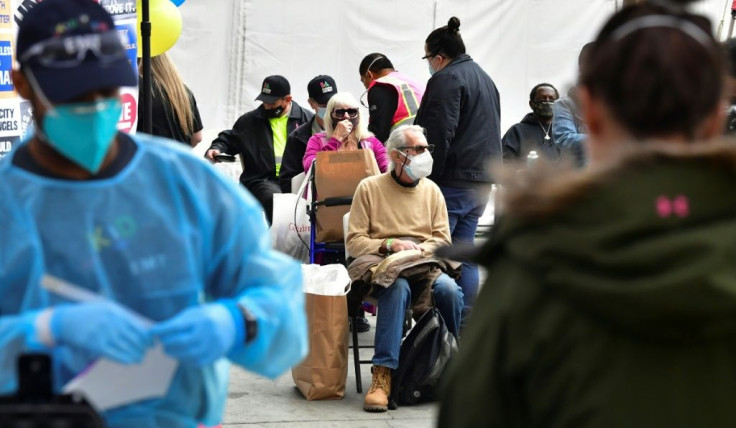COVID-19 Cases Drop To Pre-Winter Levels, But Variants Threaten Progress
COVID-19 case numbers have dropped to pre-winter levels in the U.S., but the pandemic isn't over yet. Experts warn not to get complacent in the face of highly infectious variants.
Scientists attributed the change to a number of factors, including vaccination rates and the weather, The Washington Post reports. The most reliable metric for measuring COVID-19’s spread is weekly average new cases, which have dropped below 90,000. That’s the lowest number since early November, before holiday spikes flooded intensive care wards across the nation.
Other measurements are even lower: daily cases on Feb. 15 hit 53,800, the lowest it’s been since October.
New York Governor Andrew Cuomo took a moment to express cautious optimism in a Monday statement.
“If we're able to keep the momentum headed in a positive direction by practicing safe behaviors at an individual level, as well as continuing to vaccinate New Yorkers as quickly and fairly as possible, we'll be able to reach the light at the end of the tunnel faster than previously thought and finally get some normalcy back into our lives," he said.

Cuomo’s emphasis on maintaining individual safety practices was echoed by health experts, who warned that complacency now could open the door to another surge fueled by highly infectious COVID-19 variants, some of which can reinfect inoculated patients.
"New cases are going down now, below 100,000 confirmed new cases a day. That's great news, but I'm worried we're going to start seeing an uptick again,” Dr. Peter Hotez, dean for the National School for Tropical Medicine at the Baylor College of Medicine, told CNN. “This UK variant... it seems to be accelerating in the United States.”
A recent study from the British government has confirmed that the B.1.1.7. strain is also up to 70% deadlier, contrary to earlier reports that it was only more infectious.
© Copyright IBTimes 2024. All rights reserved.





















